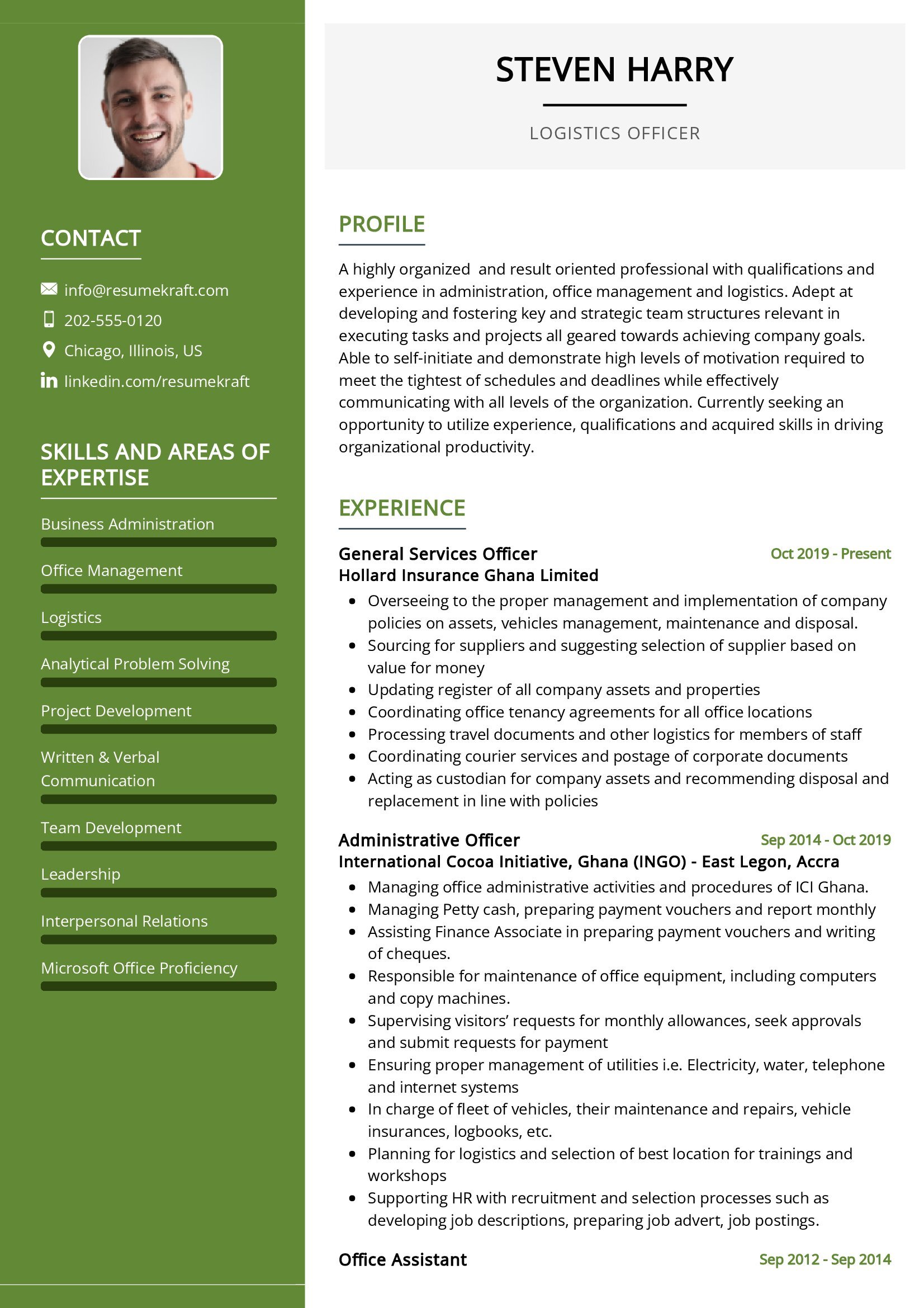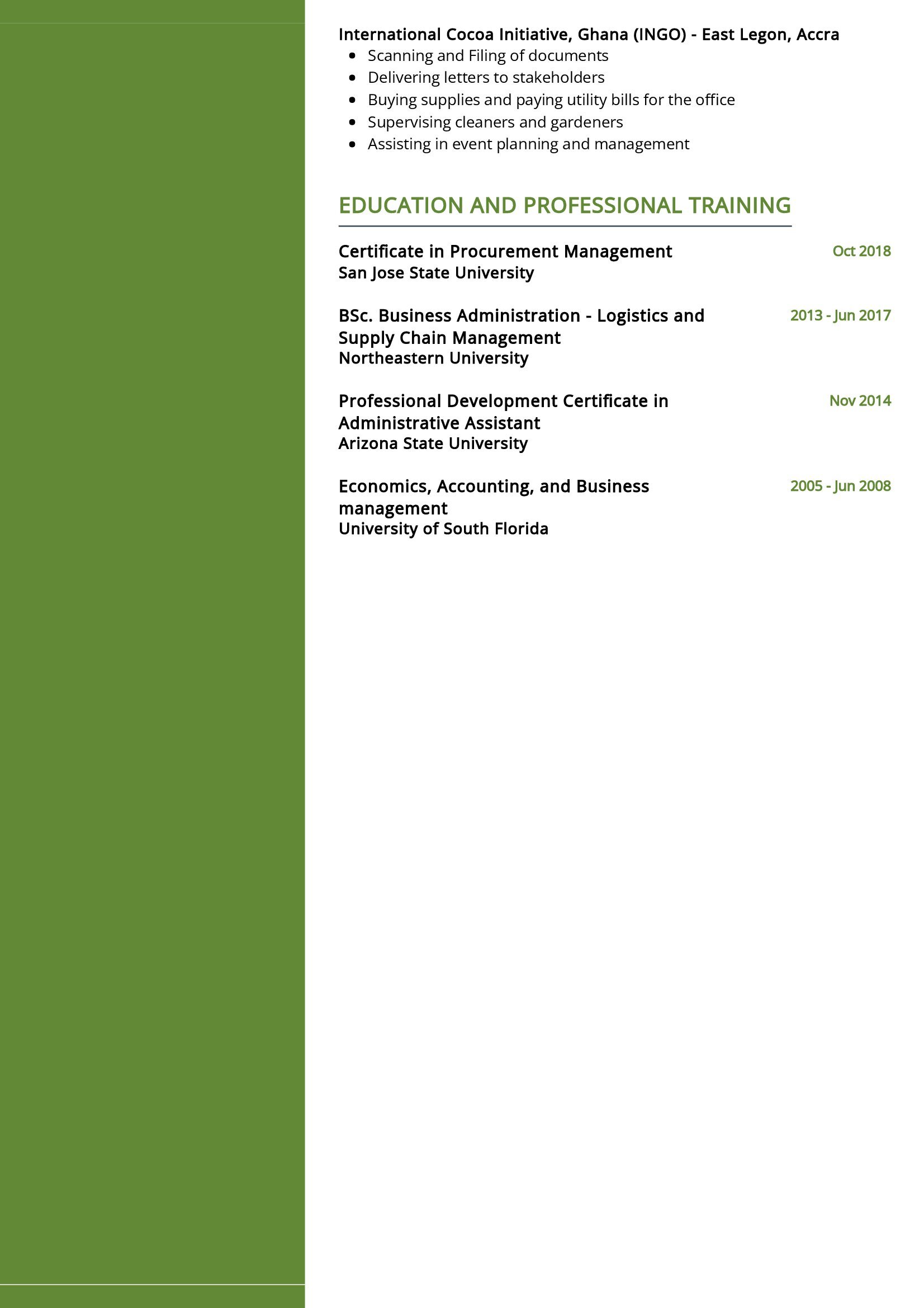Unlocking Success: The Role of a Logistics Officer
In the fast-paced world of supply chain management, the position of a Logistics Officer holds a key role in ensuring the seamless flow of goods from point A to B. This article explores the multifaceted responsibilities, essential job requirements, and effective strategies to create a compelling Logistics Officer resume that stands out in the competitive job market.
What is the Role of a Logistics Officer?
As businesses expand globally, the demand for skilled professionals in logistics has never been higher. A Logistics Officer is the linchpin that keeps the supply chain well-oiled and running. This role requires a unique blend of organizational prowess, strategic thinking, and problem-solving skills to ensure that products move efficiently from production to consumers.
A Logistics Officer is tasked with overseeing various aspects of the supply chain, including transportation, inventory management, and coordination with suppliers. Their role is crucial in optimizing processes, reducing costs, and maintaining high levels of customer satisfaction. Let’s delve into the specific responsibilities that define the role of a Logistics Officer:
Logistics Officer Job Requirements
Becoming a successful Logistics Officer requires a combination of education, skills, and experience. Here are the key requirements to embark on this challenging yet rewarding career path:
- A Bachelor’s degree in Logistics, Supply Chain Management, or a related field, providing a solid foundation in the principles of logistics.
- Proficient knowledge of logistics software and systems, showcasing the ability to navigate and utilize technology for efficient supply chain management.
- Experience in coordinating logistics processes, demonstrating a track record of successful project management.
- Strong analytical and problem-solving skills, essential for identifying and resolving issues within the supply chain.
- Excellent communication skills, as collaboration with various stakeholders is a fundamental aspect of the role.
- Adaptability and flexibility to thrive in the dynamic and ever-changing logistics landscape.
Attaining additional certifications in logistics, such as Certified Supply Chain Professional (CSCP), can significantly enhance your credentials.
Responsibilities of a Logistics Officer
The daily routine of a Logistics Officer involves a myriad of tasks aimed at ensuring the smooth operation of the supply chain. Here are the core responsibilities that define the role:
- Coordinating transportation and distribution of goods, optimizing routes for cost efficiency.
- Maintaining accurate records of inventory levels, ensuring sufficient stock to meet demand while minimizing excess.
- Negotiating and liaising with suppliers, carriers, and third-party logistics providers to secure favorable terms and maintain strong partnerships.
- Monitoring and analyzing logistics performance metrics, identifying areas for improvement and implementing strategic solutions.
- Managing and optimizing warehouse processes, including storage, packing, and shipping procedures.
- Ensuring compliance with relevant regulations and standards, minimizing the risk of legal issues in the supply chain.
- Implementing cost-saving initiatives without compromising the efficiency and effectiveness of the logistics operations.
Each responsibility demands attention to detail, strategic thinking, and effective communication to drive success in the logistics domain.
Logistics Officer Resume Writing Tips
Crafting a standout Logistics Officer resume requires a strategic approach that highlights your unique skills and experiences. Here are some tips to help you create a compelling document:
- Emphasize your experience in optimizing supply chain processes, showcasing specific examples where you improved efficiency or reduced costs.
- Quantify your achievements by including metrics, such as percentage improvements or cost savings, to provide tangible evidence of your impact.
- Showcase your proficiency with logistics software and technologies, underlining your ability to leverage tools for effective supply chain management.
- Tailor your resume to align with the specific job description, emphasizing the skills and experiences that match the employer’s requirements.
Your resume is your ticket to securing that coveted Logistics Officer position, so make sure it reflects your skills and accomplishments effectively.
Logistics Officer Resume Summary Examples
Your resume summary is the first impression you make on potential employers. Craft a compelling summary that encapsulates your expertise and highlights your value. Here are some examples to inspire you:
- “Results-driven Logistics Officer with a proven track record of optimizing supply chain processes, reducing costs by 15%, and ensuring on-time delivery. Adept at leveraging technology for efficient logistics management.”
- “Experienced Logistics Officer with a background in negotiating favorable terms with suppliers, resulting in a 20% reduction in procurement costs. Skilled in implementing process improvements to enhance overall supply chain efficiency.”
- “Detail-oriented Logistics Officer with expertise in inventory management and demand forecasting. Successfully implemented a new warehouse layout, resulting in a 30% increase in storage capacity.”
Your resume summary sets the tone for the rest of your resume, so make it impactful and tailored to your strengths.
Create a Strong Experience Section for Your Logistics Officer Resume
Your experience section is the core of your resume, providing a detailed narrative of your professional journey. Here are some examples to guide you:
- “Led the optimization of transportation routes, reducing delivery times by 25% and saving $50,000 annually in transportation costs.”
- “Implemented a barcode tracking system in the warehouse, resulting in a 20% reduction in order processing time and minimizing errors.”
- “Collaborated with suppliers to renegotiate contracts, achieving a 15% cost reduction and improving overall supplier relationships.”
Each experience listed should showcase your impact on the logistics processes and highlight your ability to drive positive change.
Sample Education Section for Your Logistics Officer Resume
Your educational background is an essential component of your resume. Here’s how you can present your academic achievements:
- Bachelor of Science in Logistics and Supply Chain Management, XYZ University, Graduated 2015.
- Certified Supply Chain Professional (CSCP), APICS, 2016.
- Advanced Diploma in Logistics Management, ABC Institute, 2014.
Each educational qualification serves as a testament to your commitment to gaining knowledge and expertise in logistics.
Logistics Officer Skills for Your Resume
Your skill set is a powerful tool in showcasing your capabilities as a Logistics Officer. Here are the essential skills to include in your resume:
Soft Skills:
- Effective communication, crucial for coordinating with various stakeholders in the supply chain.
- Problem-solving abilities, essential for identifying and resolving issues in logistics operations.
- Attention to detail, ensuring accuracy in inventory management and order processing.
- Adaptability and flexibility, key traits to thrive in the dynamic logistics landscape.
- Leadership, vital for overseeing and guiding teams in the logistics department.
Hard Skills:
- Proficiency in logistics software and systems, showcasing your ability to navigate and utilize technology for efficient supply chain management.
- Project management, essential for overseeing logistics initiatives and ensuring successful implementation.
- Negotiation skills, crucial for securing favorable terms with suppliers and carriers.
- Inventory management, showcasing your ability to maintain accurate records and optimize stock levels.
- Knowledge of regulatory compliance, ensuring adherence to relevant laws and standards in the logistics industry.
Each skill mentioned is a key asset in your arsenal, demonstrating your ability to excel in the role of a Logistics Officer.
Common Mistakes to Avoid When Writing a Logistics Officer Resume
As you craft your resume, steer clear of common pitfalls that can hinder your chances of landing that dream Logistics Officer position. Here are some mistakes to avoid:
- Using generic language in your resume, failing to showcase your unique skills and experiences.
- Neglecting to quantify your achievements, leaving potential employers without tangible evidence of your impact.
- Overlooking the importance of tailoring your resume to match the specific job description, risking the chance of your application being overlooked.
- Failing to highlight your proficiency with logistics software and technologies, a crucial aspect of the modern logistics landscape.
- Forgetting to proofread your resume, as typos and errors can create a negative impression of your attention to detail.
Avoiding these mistakes will ensure that your Logistics Officer resume stands out for all the right reasons.
Key Takeaways for Your Logistics Officer Resume
As you conclude your resume-building journey, keep these key points in mind to create a document that captivates potential employers:
- Highlight your impact on supply chain optimization, showcasing specific examples of efficiency improvements and cost savings.
- Quantify your achievements with metrics, providing tangible evidence of your success in logistics management.
- Align your resume with the specific job description, emphasizing the skills and experiences most relevant to the role of a Logistics Officer.
- Utilize resources like AI Resume Builder, Resume Design, Resume Samples, Resume Examples, Resume Skills, Resume Help, Resume Synonyms, and Job Responsibilities to enhance your application and prepare for the Logistics Officer job interview.
Armed with these insights and tips, you are now ready to craft a Logistics Officer resume that not only showcases your skills and experiences but also tells a compelling story of your impact in the world of logistics. Best of luck!
Finally, feel free to utilize resources like AI Resume Builder, Resume Design, Resume Samples, Resume Examples, Resume Skills, Resume Help, Resume Synonyms, and Job Responsibilities to create a standout application and prepare for the Logistics Officer job interview.



